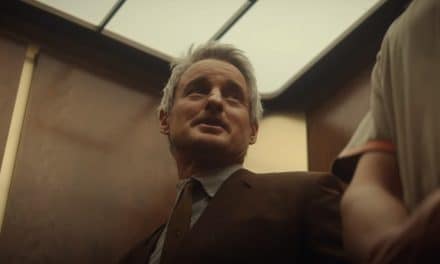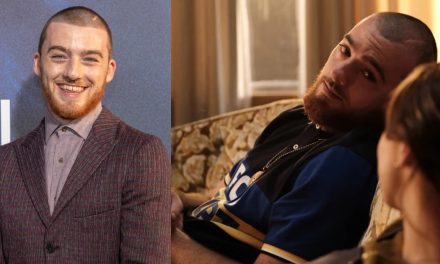The Doctor (Ncuti Gatwa) and Belinda (Varada Sethu) return for a second outing in this rebooted sophomore season of Doctor Who. Ending moments after the first episode finished, “Lux” sees the Time Lord and his new companion struggling to get her home to May 2025. For whatever reason, the day she comes from is off-limits for the TARDIS to land in.
When trying to get Belinda to her own time, the TARDIS materializes in 1952 Miami. As is often the case in Doctor Who, they arrive in the middle of a crisis. People have gone missing after a cartoon called Mr. Ring-a-Ding (voiced by Alan Cumming) comes off the screen.
The Doctor goes into detective mode while Belinda is still wary of the unusual man she has encountered. Unlike other companions, she isn’t going to dive straight into the adventure, she just wants to go back to her timeline. Her reactions are realistic; after all she was pulled out of her home by killer robots and saved by a man who claims to have seen a DNA replica of her face in the future. It’s nice to see three dimensional female companions who are more than just doe-eyed women in love with The Doctor. This episode still fails to really introduce audiences to Belinda and scratch beneath the surface of her character.
The show isn’t going to pretend that two POC would be welcomed by the people of 1950s Miami, acknowledging the racism and segregation. The episode manages to address the historical context but doesn’t make it a plot point. It would feel wrong to have a black man sitting in 50s Florida without some form of acknowledgment.
Doctor Who Goes Meta

While the show is not a stranger to using technology as a foe (Maureen Lipman’s The Wire all the way back from season 2 with Tennant and Piper), Mr. Ring-a-Ding takes this to a new level. This episode plays with different media formats and different storytelling formats to create a story unlike any other in the series’ long history. The cartoon smoothly walks off screen and into the real world, creating chaos and holding the projectionist hostage.
Mr. Ring-A-Ding is the stereotypical early 20th century cartoon with his eerily chipper voice and tap dance routines. Cumming is the perfect actor to take on the role, slowly becoming more and more menacing as the episode goes on. The cartoon character is a new type of villain in a show that has a habit of rehashing characters and story arcs. Of course, Davies can’t quite stop himself resisting old themes; it’s at least delivered in a new, fun way.
As well as playing around with cartoon styles and frames, “Lux” plays around with storytelling and audience perception of what is unfolding on screen. There is also a genius cutaway scene that takes meta to a new level, although best left unspoiled. It’s an unexpected moment that will either make superfans very happy or very annoyed.
There isn’t much threat or mystery here, and the supporting characters are pretty poorly acted and written, but the way the story is presented is unlike anything the show has tried to do before. You’ll be so impressed watching “Lux” flit between the real and cartoon world, reality and fiction, that you’ll hardly care about the missing cinemagoers or the dodgy American accents. It’s silly but in a way that is incredibly watchable.

“Lux” takes bold swings, and they mostly work. The pace is speedy, the jokes nearly all land and despite the silly concept, the episode is deceptively smart in its writing. Davies needs to have more trust that the audience can welcome fresh concepts and that Gatwa can handle whatever genre the show wants to throw at him.
Although this was not addressed last season, it looks like this second series will continue the fourth wall breaking. A few times in the last series, it was hinted at that The Doctor and friends were stuck in a TV show. Mrs. Flood, especially, seems to be aware of the fictional tale of the TARDIS and the Time Lords. She addresses the camera and speaks about The Doctor as if she were watching a fictional show taking place. She and these themes return for a second series.
‘The episode “Lux” is crammed with fresh ideas that finally feel like showrunner Russell T Davies is experimenting with his characters and storytelling. While it still can’t capture the magic of the Eccleston and Tennant years, “Lux” is the closest Gatwa iteration of The Doctor gets to bold and creative storytelling.

![Doctor Who “Lux” – Who Framed Doctor Who? [Review]](https://www.thathashtagshow.com/wp-content/uploads/2025/04/doctor-who-s2e02-lux-review-1280x640.png)
![[Review] The Falcon And The Winter Soldier Ep. 6 – Absolutely Thrilling](https://www.thathashtagshow.com/wp-content/themes/Extra/images/post-format-thumb-text.svg)


